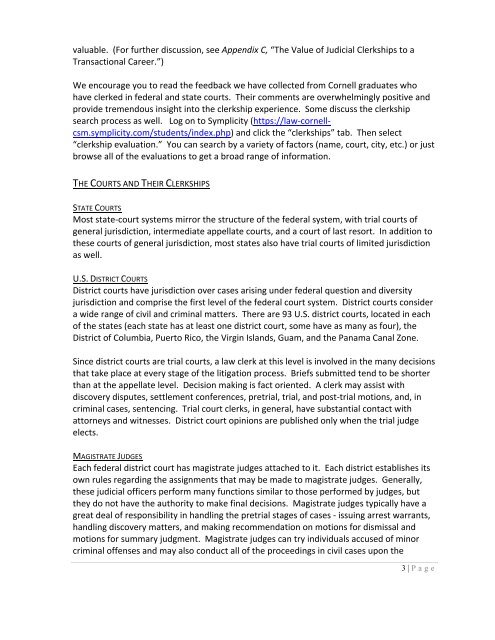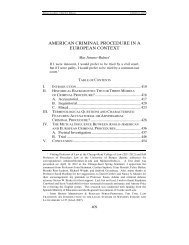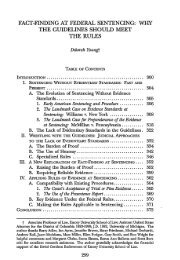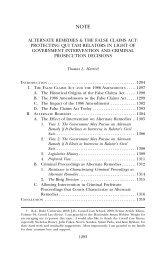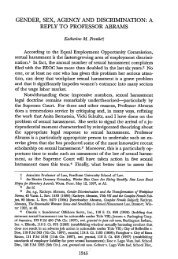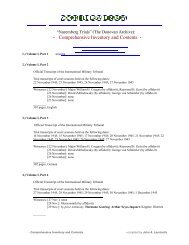JUDICIAL CLERKSHIP HANDBOOK - Cornell University Law School
JUDICIAL CLERKSHIP HANDBOOK - Cornell University Law School
JUDICIAL CLERKSHIP HANDBOOK - Cornell University Law School
You also want an ePaper? Increase the reach of your titles
YUMPU automatically turns print PDFs into web optimized ePapers that Google loves.
valuable. (For further discussion, see Appendix C, “The Value of Judicial Clerkships to a<br />
Transactional Career.”)<br />
We encourage you to read the feedback we have collected from <strong>Cornell</strong> graduates who<br />
have clerked in federal and state courts. Their comments are overwhelmingly positive and<br />
provide tremendous insight into the clerkship experience. Some discuss the clerkship<br />
search process as well. Log on to Symplicity (https://law‐cornell‐<br />
csm.symplicity.com/students/index.php) and click the “clerkships” tab. Then select<br />
“clerkship evaluation.” You can search by a variety of factors (name, court, city, etc.) or just<br />
browse all of the evaluations to get a broad range of information.<br />
THE COURTS AND THEIR <strong>CLERKSHIP</strong>S<br />
STATE COURTS<br />
Most state‐court systems mirror the structure of the federal system, with trial courts of<br />
general jurisdiction, intermediate appellate courts, and a court of last resort. In addition to<br />
these courts of general jurisdiction, most states also have trial courts of limited jurisdiction<br />
as well.<br />
U.S. DISTRICT COURTS<br />
District courts have jurisdiction over cases arising under federal question and diversity<br />
jurisdiction and comprise the first level of the federal court system. District courts consider<br />
a wide range of civil and criminal matters. There are 93 U.S. district courts, located in each<br />
of the states (each state has at least one district court, some have as many as four), the<br />
District of Columbia, Puerto Rico, the Virgin Islands, Guam, and the Panama Canal Zone.<br />
Since district courts are trial courts, a law clerk at this level is involved in the many decisions<br />
that take place at every stage of the litigation process. Briefs submitted tend to be shorter<br />
than at the appellate level. Decision making is fact oriented. A clerk may assist with<br />
discovery disputes, settlement conferences, pretrial, trial, and post‐trial motions, and, in<br />
criminal cases, sentencing. Trial court clerks, in general, have substantial contact with<br />
attorneys and witnesses. District court opinions are published only when the trial judge<br />
elects.<br />
MAGISTRATE JUDGES<br />
Each federal district court has magistrate judges attached to it. Each district establishes its<br />
own rules regarding the assignments that may be made to magistrate judges. Generally,<br />
these judicial officers perform many functions similar to those performed by judges, but<br />
they do not have the authority to make final decisions. Magistrate judges typically have a<br />
great deal of responsibility in handling the pretrial stages of cases ‐ issuing arrest warrants,<br />
handling discovery matters, and making recommendation on motions for dismissal and<br />
motions for summary judgment. Magistrate judges can try individuals accused of minor<br />
criminal offenses and may also conduct all of the proceedings in civil cases upon the<br />
3 | P age


